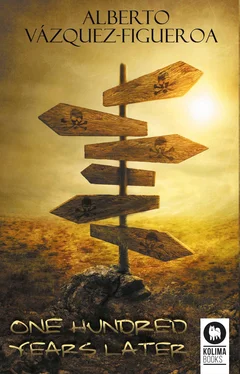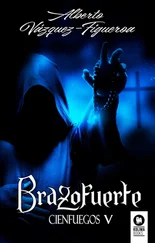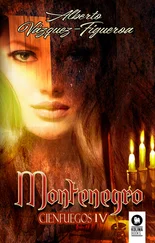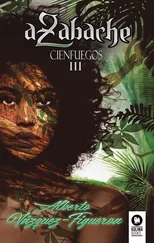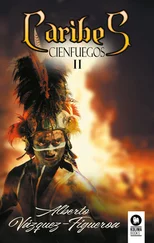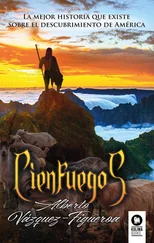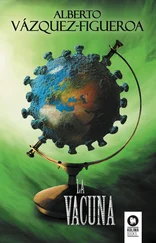One hundred years later
Alberto
Vázquez-Figueroa

Original title: Cien años después
First edition: May 2020
© 2020 Editorial Kolima, Madrid
www.editorialkolima.com
Author: Alberto Vázquez-Figueroa
Translation: Araceli Guillamón
Editorial management: Marta Prieto Asirón
Cover phototypesetting: Silvia Vázquez-Figueroa
Illustrations: @Shutterstock
Book phototypesetting: Carolina Hernández Alarcón
ISBN: 978-84-18263-17-0
The total or partial reproduction of this work is not allowed, nor its incorporation into a computer system, nor its transmission in any form or by any means, be it electronic, mechanical, by photocopy, recording or other methods, rental or any another form of assignment of the work without the prior written authorization of the owners of intellectual property.
Any form of reproduction, distribution, public communication or transformation of this work can only be carried out with the authorization of its owners, except as provided by law. Contact CEDRO (Spanish Center for Reprographic Rights) if you need to photocopy or scan any fragment of this work (www.conlicencia.com; 91 702 19 70/93 272 04 45).
The Provincial Board of Health of my presidency, during today’s session, has established the following:
Having considered the communication from the Provincial Health Inspector by which he manifests that the flu epidemic that was reported some days ago in the Capital and some villages of the province has spread considerably, invading many villages and causing many deaths, this Board, having taken into consideration the provisions of articles 153 and 154 of the General Health Instruction as well as the Sovereign Ordinance of last 24th of April, has agreed to declare the existence of an epidemic in the province of Burgos, and since some villages have committed the imprudence, despite what this Government previously ordered, of celebrating local festivities that have caused a rapid infection among their neighbors, thus generating situations of distress, I insist once again to those who were not sufficiently convinced of the grave danger that this entails, to abstain from celebrating said festivities and gatherings.
The sad experience of what occurred in other villages such as Los Balbases, where young men gathered and became infected with the disease, and in a matter of days the village mentioned reached the number of eight hundred infected out of their one thousand two hundred neighbors, is enough reason to severely punish those who do not abide by these measures.
Likewise, I wish to remind that the infection spreads by droplets of saliva that are projected when a person speaks, coughs, etc., and which people surrounding then breathe. Refrain then from staying in closed or badly ventilated premises where a large group might gather, such as taverns, cafés, etc.
Keep the windows of dormitories open during the day and air all establishments with frequency. Stay out in the country for as long as possible, as fresh air, water and daylight are the best disinfectants. Keep your mouths clean, follow the advice of doctors and disregard those ignoramuses who encourage the consumption of alcohol and tobacco as preventive remedies, since their effects are more harmful now than ever.
Burgos, on the 4th of October of 1918
The Governor: Andrés Alonso López
Chapter I
A woman appeared on the path. She looked exhausted, pained, gone, as if drugged, drunk or deep in some world to which her surrounding landscape did not belong.
She did not pay attention to the flowers, trees, or birds, and she barely flinched as she stepped ankle-deep into a puddle, getting her shoes soaked.
Finally, she stopped in front of a tall wall, crowned with a thick mess of barbed wire with razors like shaving blades and upon which every few feet hung a skeleton and a warning sign:
“No trespassing. Danger of death”.
“You are only authorized to get water and cheese”.
She did not notice the fountain, nor the chest or the dogs that barked threateningly, but lifted her eyes to the main building of a great farm where she could see all sorts of fruit trees and animals.
The woman, visibly pregnant, took one hand to her belly and pushed the gate with the other.
She fell back with the bullet in her head before she even heard the shot.
Two men ran out of the building carrying bottles of gasoline with lit wicks that they threw at her.
They threw bottle after bottle until there were only ashes left.
From behind a large window on the top floor of the house, Aurelia, who had watched the entire scene, turned inquisitively to her mother.
“What if she wasn’t sick?”
The reply was immediate:
“What if she was?”
The girl, barely a teenager, fell silent. It was the same painful question that was on everybody’s lips, and had been hammering everybody’s mind for over a year:
What if she was? The old lady sitting on the third row in church, or the truck driver eating at that neighboring table, or the kid who came running after his ball–what if they were all sick?
Who could guarantee that none of them, that none out of the hundreds of thousands of elderly people, truck drivers or children who wandered the face of the Earth, carried the invisible seeds of death?
Seeds that had proven capable of taking root in any human being, regardless of their age, race or color. Victims who instantly became the propagators of an evil that was spreading like the waves of a pond where someone just dropped a pebble.
Where the pebble had come from, nobody knew. Despite the efforts of thousands of specialists who spent whole days and nights searching for an answer.
In fact, for them there was no difference between day and night, because they were so many, scattered across the length of the planet, that not a single second went by in which somebody did not try to contain the bloodbath.
Suddenly, there came the monotonous rumble of the tractor and Aurelia watched with bitter sadness as her father dug outside the farm, under the old oak tree, a grave where he would drop the burnt remains of that woman, to then smoothen the earth above until there was no trace of the existence or the future life of the child that she had born inside.
“It’s unfair.”
“Darling, you’re right, it isn’t fair,” said her mother, who was also watching the scene, “but justice vanished the moment we were all equal before her.”
“I’m not sure I understand.”
“It’s very simple, honey. See, now that we’re all exposed to this sickness, rich and poor, humble and powerful, lawful and criminal, we’re all the same. No one tries to pressure a judge or bribe a jury because they know that it could be their father, daughter or brother carrying their death sentence.”
“Not here.”
“No, certainly not here, and that’s why it has become our duty to defend ourselves. My heart breaks every time we bury one of those poor people, but there would be no end to my sorrow if it was one of you whom I had to bury instead.” The devastated woman paused, “I’m still not sure that your brother ever got a decent burial.”
“We still don’t know if he’s dead.”
“You’re very right; even I don’t know. A mother is supposed to feel those things deep inside her chest, but time goes by and the chances of him being alive grow smaller and smaller. But please don’t tell me that hope is the last thing we should lose because if that were the case, then what we’re doing here is unforgivable.”
“Dad and uncle Samuel believe that we have the right to defend ourselves.”
Читать дальше
